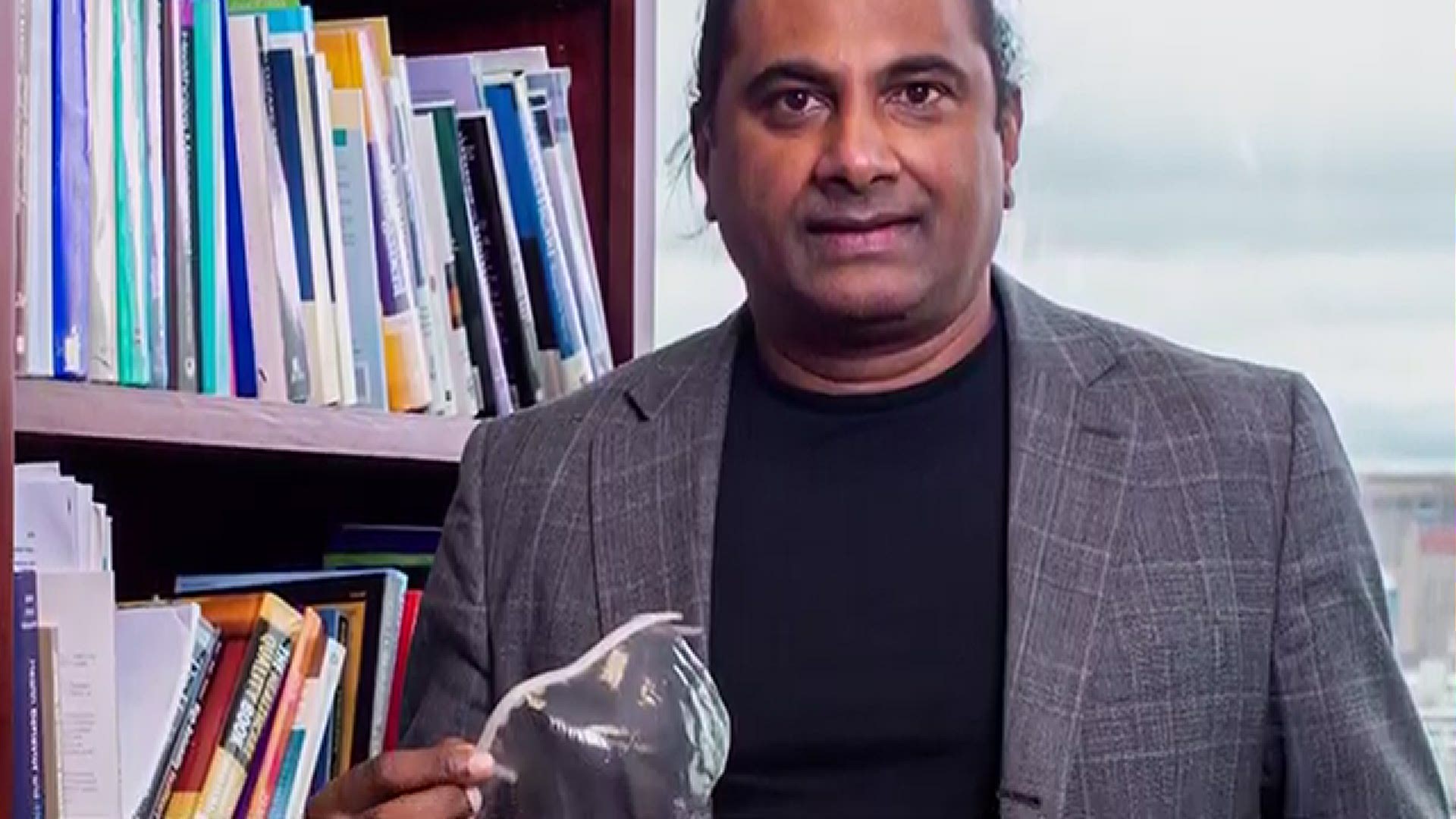BIRMINGHAM, Ala. — An entirely transparent facemask designed by Rubin Pillay, Ph.D., chief innovation officer in the University of Alabama at Birmingham School of Medicine, and produced by Birmingham firm Fitz-Thors Engineering Inc. could revolutionize masking and monitoring for COVID-19 symptoms, Pillay says.
Unlike other clear mask models, which still feature white or colored straps, Pillay’s masks feature a clear plastic mouth covering and clear nose barriers, chin barriers and ergonomic looped arms that secure around a wearers’ ear. The looped design allows the wearer to easily lift the mask without removing it entirely to eat or drink.
“We started working on this idea around March or April,” Pillay said, adding that his initial idea was N95 mask nasal inserts before it grew into the current design. “We followed the whole innovation process — we spoke to physicians, clinicians and the average layperson. It truly transforms masking. We wanted it to be fully transparent, functional and ergonomic.”
Pillay designed the mask to be modular: The basic version includes just the mask itself. For more protection, the wearer can attach N95 filter cushions around the mask barrier for use in a health care setting. Another modification allows the wearer to swap the mask arms for ones with sensors that monitor temperature and pulse for early detection of viral infections such as COVID-19. The modifications for the basic mask will be sold separately, Pillay says, so buyers can customize the mask for their own specific needs.
“I always had this dream of a ‘smart mask,’” said Pillay, who worked with UAB Department of Materials Science and Engineering Chair Brian Pillay, Ph.D., on later versions of the mask design. “I figured there had to be a better way to mask. The smart version of this clear mask is the equivalent of having a Fitbit around your head.”
Outside of providing a barrier protection against in-person transmission of viral infections such as COVID-19, Pillay says the data gathered by the masks’ sensors could transform the diagnostic process.
“I think with the data we collect, we can develop digital diagnostic data to diagnose COVID-19, and people wouldn’t need to queue for testing,” he explained.
As mask production begins, Pillay says he hopes initially to distribute them into school and health care systems, with the goal of beginning commercial production soon.
This story is originally from the University of Alabama at Birmingham.
IN OTHER NEWS: Local doctors say vaccination rate could be higher

